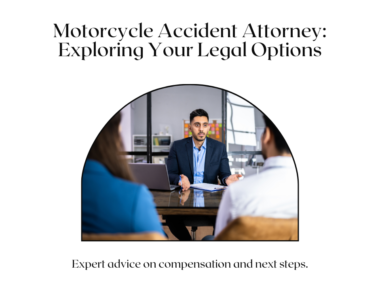Truck accidents are among the most catastrophic incidents on the road, often resulting in severe injuries, significant property damage, and, sometimes, loss of life. Given the sheer size and weight of commercial trucks, the consequences of these accidents can be far-reaching and devastating. Navigating the legal complexities of a truck accident requires specialized knowledge and a relentless dedication to fighting for justice. This article delves into the critical role of a truck accident lawyer and the various aspects they address to ensure their clients receive fair compensation.
The Impact of Truck Accidents
Severity and Frequency
Truck accidents involving semis, tankers, and large delivery trucks often have more severe consequences than regular car accidents. According to the Insurance Institute for Highway Safety (IIHS), a significant percentage of truck crashes are classified as fatal due to the massive size and weight of these vehicles compared to passenger cars. The severity of injuries can range from minor to catastrophic, including traumatic brain injuries, spinal cord injuries, fractures, and, in worst-case scenarios, fatalities.
Common Causes of Truck Accidents
Truck accidents can occur due to various factors, including:
- Distracted Driving: Texting, using a GPS, or other distractions can lead to catastrophic accidents. Drivers of all vehicles must remain aware of their surroundings. Still, truck drivers bear an even greater responsibility due to the potential damage their vehicles can cause.
- Driver Fatigue: Truck drivers often face long hours on the road, leading to fatigue and impaired judgment. Federal regulations limit the number of hours a driver can operate a truck. Still, violations are common due to tight delivery schedules.
- Poor Road Conditions: Inadequate maintenance of roads can contribute to accidents. Potholes, uneven surfaces, and lack of proper signage are frequent issues that can cause trucks to lose control.
- Improper Loading: Incorrectly loaded cargo can cause a car to become unbalanced and difficult to control. This issue is particularly problematic for trucks carrying hazardous materials, where a spill can have serious environmental and health consequences.
- Equipment Failure: Brake failures and other mechanical issues are also common causes. Regular maintenance and safety checks are critical to preventing these accidents, but lapses often occur due to trucking companies’ cost-cutting measures.
Legal Framework and Challenges
Regulations and Compliance
Truck drivers and trucking companies are subject to stringent rules enforced by the Federal Motor Carrier Safety Administration (FMCSA). These regulations cover driving hours, vehicle maintenance, and cargo loading. Adhering to these regulations is crucial for safety; however, non-compliance remains a significant issue, often contributing to accidents.
Proving negligence:
Establishing liability in a truck accident can be complex. It involves:
- Gathering Evidence: This includes collecting police reports, medical records, witness statements, and photographic evidence from the accident scene. Thoroughly collecting proof is critical in building a solid case.
- Analyzing Logbooks and Maintenance Records: Review the driver’s logbook for compliance with driving hour regulations and examine the truck’s maintenance records for negligence. Any discrepancies or lapses can significantly prove the truck driver or company’s liability.
- Expert Testimony: In some cases, accident reconstruction experts may be required to provide insights into the cause of the accident. Their testimony can help establish fault and demonstrate the severity of the negligence involved.
Common Defendants
Liability can extend beyond the truck driver to include:
- Trucking Companies can be held responsible for failing to enforce safety regulations, adequately maintaining their fleet, hiring unqualified drivers, or pushing drivers to violate hours-of-service regulations.
- Cargo Loaders: For improper loading of goods. Incorrect loading can shift during transit, causing the truck to tip or lose control.
- Vehicle Manufacturers: For defects in the car or its components. Defective parts or manufacturing flaws can lead to mechanical failures on the road.
- Local Governments: For poor road maintenance or design. Inadequate road conditions can create hazardous situations that contribute to accidents.
Pursuing Justice: The Role of a Truck Accident Lawyer
A truck accident lawyer is an invaluable ally when seeking justice and fair compensation for truck accident victims. Their responsibilities include conducting thorough investigations, gathering evidence, negotiating with insurance companies, representing clients in court, and advocating for their rights to ensure they receive the compensation they deserve.
Comprehensive Case Evaluation
- Initial Consultation: Understanding the client’s accident account, assessing the potential case merits, and discussing legal options. The lawyer will gather all initial information and provide a realistic assessment of the case’s strengths and weaknesses.
- Medical Evaluation: Ensuring medical professionals thoroughly assess the client’s injuries to document the extent of physical and psychological harm. This includes ongoing treatment plans and future medical needs.
Evidence Gathering
- Meticulous Collection: Gathering all necessary evidence, including accident reports, witness statements, and surveillance footage. Thorough documentation is essential for establishing the facts of the case.
- Expert Involvement: Engaging experts in accident reconstruction, vocational rehabilitation, and medical fields to build a compelling case. These experts provide detailed analyses and reports that support the client’s claims.
Negotiating with Insurance Companies
- Insurance Claims: Handling communications with insurance companies to negotiate fair settlements. This includes interpreting policy details, proving liability, and calculating fair compensation for injuries, lost wages, and other damages.
- Settlement Offers: Evaluating settlement offers to ensure they cover all current and future medical expenses, loss of earnings, and other accident-related costs. The lawyer will advise clients to accept a settlement or pursue further legal action.
Litigation
- Court Representation: If a fair settlement cannot be reached, the lawyer will file a lawsuit and represent the client in court. This process involves detailed preparation and a strategic approach to presenting the case.
- Trial Preparation: Preparing for trial involves gathering and presenting evidence, examining witnesses, and making persuasive arguments to support the client’s claims. The lawyer will work closely with the client to prepare for depositions and court appearances.
Advocacy and Support
- Emotional and Legal Support: Providing clients compassionate and personalized legal support throughout the legal process. This includes regular updates on case progress and addressing any concerns the client may have.
- Ongoing Communication: Keeping clients informed about the progress of their cases and explaining complex legal terms and processes in understandable language. Clear communication ensures clients feel supported and confident in their legal journey.
Case Study: Navigating a Truck Accident Claim
Consider the case of a client involved in a severe truck accident on Duval Street in Key West, Florida. The accident occurred due to a fatigued truck driver who failed to adhere to mandated rest periods. The client suffered multiple injuries, including spinal cord damage and broken limbs.
Step-by-Step Legal Process:
- Initial Consultation and Medical Care: The lawyer ensured the client received immediate and ongoing medical care, assessing the injuries’ severity.
- Evidence Collection: Comprehensive evidence, including the truck driver’s logbook, maintenance records, and accident scene photos, was meticulously gathered.
- Expert Analysis: Accident reconstruction experts were hired to demonstrate how the driver’s fatigue contributed to the crash.
- Insurance Negotiation: The lawyer negotiated with the trucking company’s insurance provider to cover medical expenses, rehabilitation costs, lost wages, and pain and suffering.
- Filing a Lawsuit: When the insurance company’s settlement offer was insufficient, the lawyer filed a lawsuit and represented the client in court.
- Trial: During the trial, the lawyer presented compelling evidence and expert testimony, resulting in a substantial verdict in favor of the client.
Challenges in Truck Accident Claims
Insurance Company Tactics
Insurance companies frequently use various strategies to reduce payouts, including disputing liability, minimizing the extent of injuries, and proposing fast but insufficient settlements. A skilled attorney specializing in truck accident cases is well-versed in effectively addressing these tactics and vigorously representing their client’s best interests.
Complex Liability Issues: Identifying
Navigating liability in truck accidents can be pretty challenging due to the involvement of multiple parties, such as the truck driver, the trucking company, and potentially even the truck manufacturer or its parts. An experienced lawyer who specializes in truck accident cases will skillfully navigate these complexities, thoroughly investigating the incident and holding all responsible parties accountable for their actions.
Long-Term Implications
Truck accidents can have devastating and lasting effects on the victims, leading to ongoing medical treatment, extensive rehabilitation, and a significant impact on their overall quality of life and ability to work. It is essential for lawyers to meticulously account for these long-term costs when negotiating a settlement or presenting a case in court.
Choosing the Right Truck Accident Lawyer
When choosing a lawyer for a truck accident case, it’s crucial to carefully evaluate their experience, track record, and commitment to client care. Some key attributes to consider include their familiarity with truck accident cases, their success in handling similar cases, and their approach to communication and support for clients throughout the legal process.
Experience and Expertise
- Track Record: Successfully achieving settlements and verdicts in truck accident cases is a well-documented part of our track record.
- Specialization: I have extensive experience in managing claims related to truck accidents and a deep understanding of the complexities of trucking regulations.
Client-Centered Approach
- Compassionate Care: Our dedicated team provides personalized care and support tailored to each customer’s unique needs, ensuring they receive the individual attention and assistance they deserve.
- Communication: Ensuring our clients are consistently updated and engaged at every stage of the legal process.
Dedication and Advocacy
- Relentless Pursuit of Justice: Remember the following text: Dedicated to advocating for the rights of truck accident victims.
- Comprehensive Legal Strategy: Utilizing a thorough and systematic strategy to construct a persuasive argument and secure equitable reparation.
The Financial Aspect: Maximizing Compensation
Regarding truck accident claims, it’s essential to understand that they often involve seeking significant financial compensation for various damages. These damages include medical expenses, lost wages, property damage, pain and suffering, and other related costs.
Economic Damages
- Medical Expenses: This includes coverage for the accident’s present and future medical expenses.
- Lost Wages: Compensation for lost income due to the inability to work is often referred to as Lost Wages
- Property Damage: Reimbursing the expense of repairing or replacing a vehicle due to damage.
Non-Economic Damages
- Pain and Suffering: Compensating for physical pain and emotional distress.
- Loss of Consortium: Addressing the impact on relationships with loved ones.
Punitive Damages
In situations with clear and extreme negligence or intentional wrongful behavior, punitive damages can be granted as a form of punishment for the offender and to discourage similar actions from happening in the future.
The Role of Technology and Innovation
Modern technology plays a crucial role in handling truck accident claims. Lawyers utilize various tools and techniques, such as accident reconstruction software, electronic evidence gathering, and data analysis, to strengthen their cases. These tools help identify liability, prove negligence, and present compelling evidence in court. Additionally, technology enables lawyers to gather and organize large amounts of data efficiently, which is essential in building a solid legal case.
Accident Reconstruction Software
Advanced software can simulate an accident, creating a visual representation that accurately depicts how the incident unfolded. This visual representation can serve as compelling evidence in a court of law, offering a clear and detailed portrayal of the events.
Electronic Logging Devices (ELDs)
Documenting and analyzing various aspects of a truck’s operation, such as driving hours, speed, and braking patterns, is essential. This information can be instrumental in determining any potential negligence and liability in case of accidents or incidents involving the truck.
Surveillance Footage and Dash Cams Video
Surveillance cameras and dashcams can play a critical role in providing valuable evidence to understand the details of an accident. This evidence can be instrumental in determining liability and understanding precisely what happened during the incident.
Medical Technology
Sophisticated medical imaging techniques and advanced diagnostic tools are crucial in accurately documenting injuries’ full scope and severity. This comprehensive documentation provides essential support for the accurate assessment of compensation that truly reflects the impact of the injuries.
Preventative Measures and Advocacy
Truck accident lawyers not only represent clients involved in trucking accidents but also promote safer practices within the trucking industry to prevent future accidents. This advocacy includes collaborating with regulatory agencies, industry stakeholders, and policymakers to develop and implement safety regulations and standards. Additionally, they may engage in public awareness campaigns, educational initiatives, and lobbying efforts to promote best practices and ensure compliance with safety regulations within the trucking industry.
Policy Advocacy
We are advocating for implementing more stringent regulations and improving enforcement mechanisms for current laws to elevate the overall safety standards on our roads.
Public Awareness Campaigns
We are promoting awareness among the general population about the potential risks associated with truck accidents and advocating for adopting safe driving behaviors to reduce the likelihood of such incidents.
Collaboration with Safety Organizations:
Collaborating with various organizations focused on promoting road safety to create and execute impactful strategies and initiatives to enhance overall road safety.
Conclusion
Truck accidents can drastically alter the lives of victims, leading to severe injuries, financial burdens, and emotional trauma. A truck accident lawyer is essential in navigating the legal complexities, advocating for justice, and ensuring victims receive the compensation they deserve. By understanding the causes, challenges, and legal processes involved in truck accident claims, victims can make informed decisions and secure the reliable legal representation necessary to pursue justice and rebuild their lives.
Don’t hesitate to seek professional legal assistance if you or a loved one has been involved in a truck accident. A dedicated truck accident lawyer will provide the expertise, support, and relentless advocacy needed to secure fair compensation and justice for the damages suffered.






1 comment